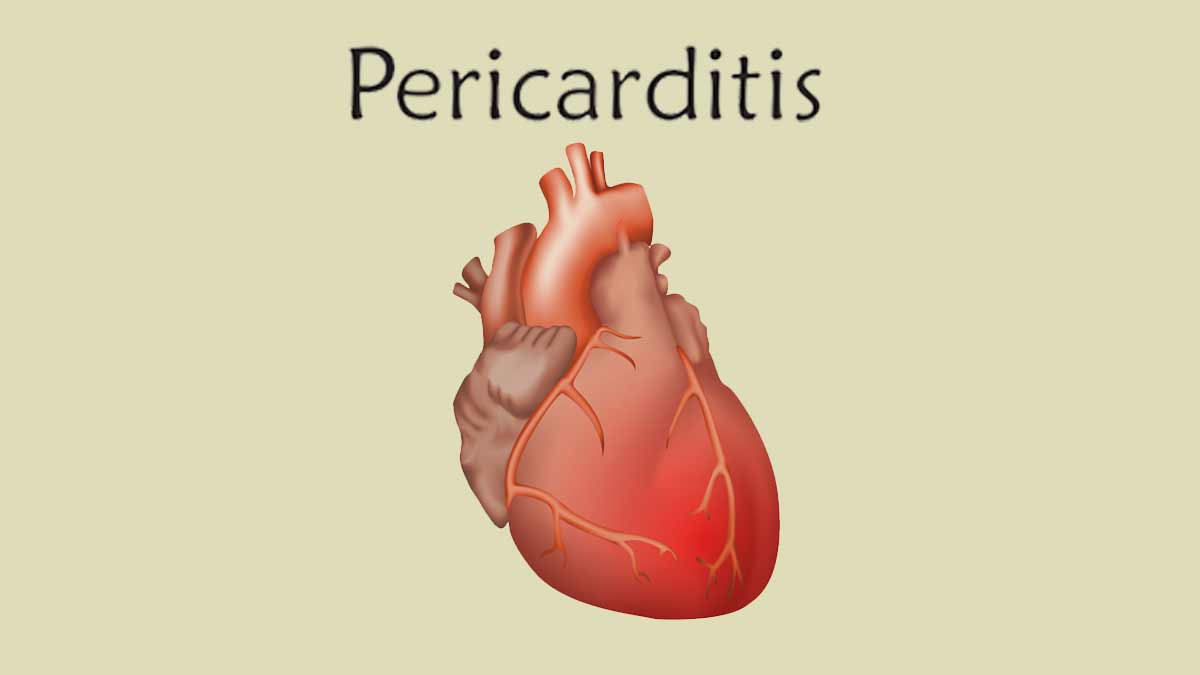
Experiencing chest pain that doesn’t go away, shortness of breath, or the unsettling thump of a racing heartbeat can be frightening. For many, these signs may indicate pericarditis, a condition characterised by inflammation of the thin protective lining around the heart. The discomfort can range from manageable to severe, and without proper care, it may lead to complications affecting heart function. We spoke to our expert Dr Ravindranath Reddy DR, HOD and Senior Consultant, Interventional Cardiology, Gleneagles, BGS Hospital, Kengeri, Bengaluru, who explained pericarditis, its symptoms, and treatment measures.
Table of Content:-

“Pericarditis refers to the inflammation of the pericardium, the thin, sac-like membrane that encases the heart. This condition can cause significant discomfort and may lead to complications if not diagnosed and treated promptly,” said Dr Reddy,
According to the American Heart Association (AHA), pericarditis can arise from various factors, such as viral, bacterial, fungal, and other types of infections. It may also be triggered by a heart attack, heart surgery, radiation therapy, certain medical conditions like lung or breast cancer, injuries, or even specific medications. The condition may be classified as acute, occurring suddenly and usually resolving in a short period, or as chronic, persisting for over three months and often requiring longer treatment.
Common Symptoms of Pericarditis
The symptoms of pericarditis can vary from person to person, but several hallmark signs are commonly associated with this condition. Here are some symptoms listed by Dr Reddy:

- Chest Pain: This is the most frequent symptom of pericarditis, often described as sharp or stabbing and typically felt in the centre or left side of the chest. It may worsen with deep breathing, coughing, or lying down, and patients often find relief by sitting up or leaning forward.
- Shortness of Breath: Patients may have trouble breathing, particularly when lying flat. This symptom can be particularly concerning and may lead to increased anxiety.
- Fever: Low-grade fever may accompany pericarditis, indicating an inflammatory body process.
- Fatigue and General Malaise: Many patients report feeling unusually tired or unwell, which can stem from the body’s inflammatory response.
- Palpitations: Some individuals may notice a sensation of rapid or irregular heartbeats, which can be distressing.
Also Read: What Is Pericarditis? Know Everything About This Heart Disease
How To Diagnose Pericarditis
Diagnosing pericarditis requires clinical assessment, imaging techniques, and laboratory testing. The process typically includes:

- Medical History and Physical Examination: A thorough history assesses symptoms, previous medical conditions, and potential triggers, such as infections or recent surgeries. During the physical exam, the physician may listen for a characteristic sound called a 'pericardial rub,' often present in pericarditis.
- Electrocardiogram (ECG): An ECG is a crucial diagnostic tool in pericarditis. Patients may show characteristic changes, such as ST-segment elevation and PR-segment depression, which can help differentiate pericarditis from other cardiac conditions.
- Imaging Studies: Echocardiography is commonly used to assess the heart’s structure and function, helping to identify any effusion (fluid accumulation) around the heart. In some cases, a chest X-ray or cardiac MRI may be performed for further evaluation.
- Laboratory Tests: Blood tests may be ordered to check for markers of inflammation (C-reactive protein and erythrocyte sedimentation rate), as well as to rule out other causes of chest pain, including myocardial infarction (heart attack).
Also Read: Non-Heart-Related Chest Pain: Expert Lists 6 Causes And How to Address Them
Treatment of Pericarditis
The treatment approach for pericarditis largely depends on the underlying cause, the severity of symptoms, and whether there are any complications. Here are the common treatment options listed by the expert:

Medications
- Nonsteroidal Anti-Inflammatory Drugs (NSAIDs): NSAIDs, such as ibuprofen or aspirin, are typically the first-line treatment for reducing pain and inflammation associated with pericarditis.
- Colchicine: This medication can be used with NSAIDs to decrease the risk of recurrence and improve symptoms.
- Corticosteroids: These may be prescribed if NSAIDs and colchicine fail to provide relief. However, they are usually reserved for patients with autoimmune conditions or severe symptoms due to potential side effects.
Treating Underlying Causes
"If pericarditis is secondary to an underlying condition (infection or autoimmune disease), treating that condition is essential. For example, if a viral infection is identified, supportive care is provided, while bacterial infections may require antibiotics," said Dr Reddy.
Surgical Interventions
In rare cases where there is significant fluid accumulation (pericardial effusion) or constrictive pericarditis, surgical procedures like pericardiocentesis (drainage of fluid) or pericardiectomy (removal of the pericardium) may be necessary.
Bottomline
Dr Reddy concluded, “Pericarditis can be a distressing condition with various symptoms that can significantly affect a patient's quality of life. Early diagnosis and appropriate management are essential to alleviate symptoms and prevent complications. As a cardiologist, I emphasise recognising the symptoms and understanding the diagnostic process to provide effective treatment. With timely intervention, most patients can expect a good prognosis and a return to normal activities.”
[Disclaimer: This article contains information provided by an expert and is for informational purposes only. Hence, we advise you to consult your own professional if you are dealing with any health issues to avoid complications.]
Also watch this video
Read Next
Diwali 2024: Important Tips To Prevent Asthma Attacks As Pollution Rises During Festive Season
How we keep this article up to date:
We work with experts and keep a close eye on the latest in health and wellness. Whenever there is a new research or helpful information, we update our articles with accurate and useful advice.
Current Version
